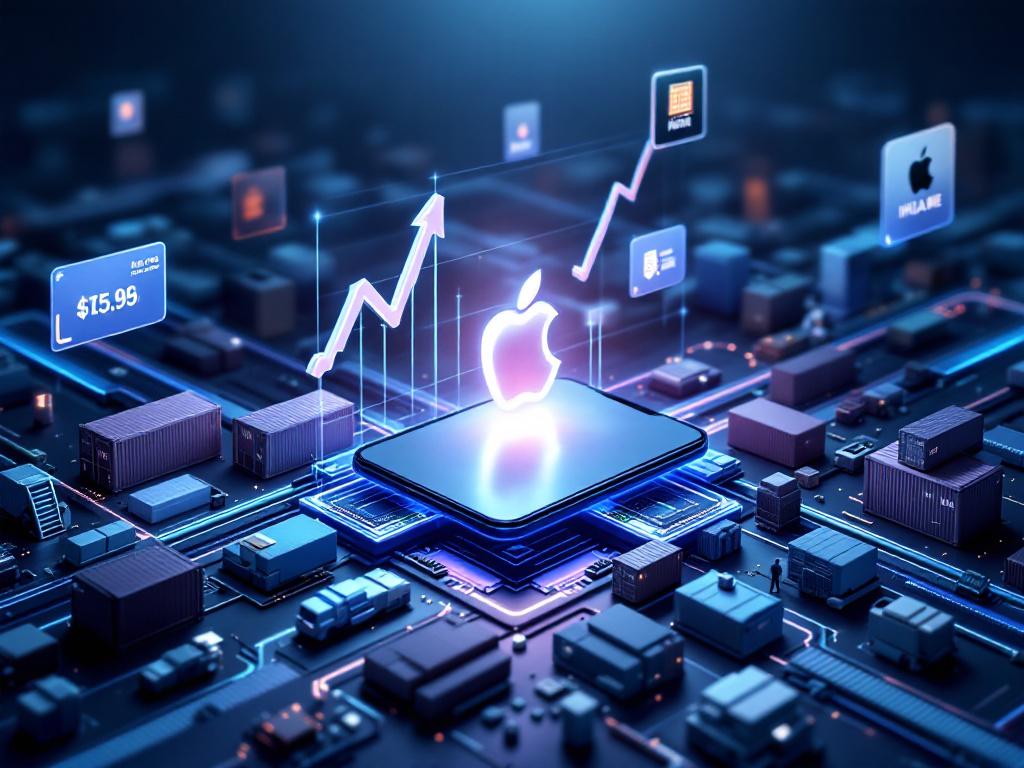Articles in this Cluster
23-05-2025
Apple slightly increased trade-in values for iPhones in China to boost demand amid intensifying competition and declining market share. The iPhone 15 Pro Max trade-in now reaches up to 5,700 yuan (from 5,625), and the 15 Pro up to 4,750 yuan (from 4,725), with increases across other models. The move follows recent discounts as Apple’s China shipments fell 8% year over year in Q1 and market share slipped from 15% to 13%, per Canalys. Apple also faces broader challenges, including supply chain uncertainty, potential tariffs on electronics, and pressure over production locations. Rivals Huawei and Xiaomi are surging, with Huawei’s chip-driven comeback and Xiaomi’s push into high-end phones and in-house chips, backed by a nearly $7 billion, 10-year chip investment.
Entities: Apple, China, iPhone 15 Pro Max, Canalys, Huawei • Tone: analytical • Sentiment: neutral • Intent: inform
23-05-2025
President Trump said Apple will face a tariff of at least 25% on iPhones made outside the U.S., pressuring the company to shift production domestically. Apple shares fell 3% on the news. Trump indicated the tariff, starting end of June, would apply to other smartphone makers like Samsung. Analysts warn U.S.-made iPhones could cost 25%+ more, with one estimate at $3,500. Apple, which has been moving some production to India and faces weak demand in China, expects about $900 million in additional tariff costs this quarter. The legal mechanism for the new tariff is unclear, and the move signals rising trade tensions alongside Trump’s call for a 50% tariff on EU products. Treasury Secretary Scott Bessent linked the push to strengthening U.S. precision manufacturing and semiconductor supply chains. Apple declined comment.
Entities: Donald Trump, Apple, iPhone, Samsung, United States • Tone: analytical • Sentiment: negative • Intent: inform
23-05-2025
President Trump threatened a 25% tariff on Apple if iPhones sold in the U.S. aren’t manufactured domestically, saying Samsung and other phone makers could face the same to ensure “fairness.” The move aims to push high-precision manufacturing and secure semiconductor supply chains in the U.S., according to Treasury Secretary Scott Bessent. Apple has been shifting production to India to diversify from China, with Tim Cook saying most U.S.-sold iPhones would originate from India and estimating up to $900 million in tariff costs this quarter. Analysts and Apple’s history suggest large-scale U.S. iPhone production is impractical due to workforce scale, cost, and supply chain realities. Trump previously exempted electronics from broader China tariffs, but a 10% universal tariff remains on most imports. Apple did not comment.
Entities: Donald Trump, Apple, iPhone, Samsung, United States • Tone: analytical • Sentiment: neutral • Intent: inform
23-05-2025
The article explains why shifting iPhone production to the U.S. is technically possible but economically impractical. Experts say U.S.-made iPhones could cost $2,000+ due to new machinery, heavy automation needs, and a smaller labor pool. Apple is unlikely to recoup the huge investment given the iPhone’s maturity and potential AI-era successors. Past U.S. assembly attempts faced labor and supplier hurdles. China remains essential for its massive, flexible workforce, dense supplier networks, and abundant tooling engineers—capabilities the U.S. lacks. Apple’s expansion in India reduces tariffs and boosts local sales but still relies on Chinese subassemblies, leaving overall dependence on China largely intact.
Entities: Apple, iPhone, United States, China, India • Tone: analytical • Sentiment: neutral • Intent: analyze
23-05-2025
Donald Trump threatened a 25% tariff on iPhones and other smartphones sold in the U.S. if they aren’t made domestically, signaling the policy would apply to Apple, Samsung, and others to ensure “fairness.” His comments knocked about $70bn off Apple’s market value. The move follows escalating tariffs on China, where most iPhones are assembled, and Apple’s reported plan to shift U.S.-bound iPhone assembly to India. Trump criticized that shift, insisting production occur in the U.S. Analysts warn U.S. manufacturing would be prohibitively expensive, with estimates suggesting a U.S.-made iPhone could cost around $3,500. The U.S. is Apple’s largest iPhone market, with over 60 million units sold annually.
Entities: Donald Trump, Apple, Samsung, iPhone, United States • Tone: analytical • Sentiment: negative • Intent: inform
